Field Dispatches: LA County Steps Up Role as Social "Safety Net"
"This crisis can be a wake-up call for us to kick-start multi-sectordata sharing including building a platform for data sharing."
Irene Vidyanti, Data Scientist, LA County Chief Information Office.
The COVID crisis has triggered a cascade of connected issues. In Los Angeles, mass unemployment may lead to a 45% jump in homelessness. Financial and food insecurity have spiked. Anxiety, depression, and mental health problems have risen. Simultaneously, many of the nonprofits and community-based organizations addressing these issues have temporarily shuttered during stay-at-home orders.
Programs have been cut, services reduced, and resources have been strained.
Nationwide, many community stakeholders, organizations, and service providers in the All In communities are experiencing similar tensions. The increased demands and reduced resources in these unprecedented times are creating new challenges--challenges that may find solutions in data sharing.
"There is an urgent need for data to direct resources appropriately based on the best available evidence and to mitigate the risk of spreading the disease," explains Irene Vidyanti, a Data Scientist with LA County's Chief Information Office. "We need to respond to the crisis by managing and identifying who among our clients have increased needs and deliver needed services to them."
A Different World with Different Priorities
LA County developed a data-sharing information hub to solve real time riddles more rapidly. Riddles of the micro and macro variety-a missed appointment, an overnight jail stay, a mental health crisis-to identify solutions and coordinate care faster.
"We had a lot of data, but not a lot of information." Ricardo Basurto-Davila, Principal Analyst at LA County Chief Information Office, observes.
They needed to be able to see patterns more quickly. The homeless client who missed an appointment yesterday turns out to have been arrested the night before. Zooming out even further, the pattern becomes clearer: the client has missed their last 10 mental health appointments. Now, they can answer the right questions faster with better solutions. In the past couple months, some of those questions have changed, but the solutions can still be found in the systems for shared data.
Responding to the COVID Crisis Faster
LA County pivoted to focus on COVID related challenges at the onset of the crisis. They redirected their data hub to begin focusing on the response to the virus and related factors immediately.
Identifying homeless clients with a positive COVID diagnosis to limit contact and promoting safe isolation practices.
Informing shelter workers of a positive COVID diagnosis so that they can take appropriate precautions.
Prioritizing care for homeless clients with higher risk profiles, CDC identified comorbidities or underlying health factors that put them at increased risk for COVID.
Coordinating care and service delivery for COVID adjacent issues, like food insecurity and other issues.
Vidyanti believes that there are other use case applications that can be deployed as well using the data-sharing strategy for social service clients, justice involved youth, and child / family services.
"This crisis can be a wakeup call for us to kick start multisector data sharing including building a platform for data-sharing." Vidyanti notes, pointing out that you do not need something as sophisticated as LA County's platform to get started. Navigating the legal requirements, building partnerships, and coordinating relationships are always the heaviest part of the lift, but laws on data-sharing during a public health emergency are slightly more flexible. Also, the returns on investment are more self-evident and immediate.
Check out our resources below to learn more.
Resources
Learn more from Irene Vidyanti, Ricardo Basurto-Davila, and other Health and Housing experts from Cleveland and Cook County in the All In Webinar: Leveraging Health and Housing Linkages In Response to COVID-19
Interested in learning more about the legal issues surrounding data-sharing during a public health emergency check out COVID-19: Data Sharing for Public Health Surveillance, Investigation and Intervention hosted by Jennifer Bernstein and Sallie Milam with the Network for Public Health Law
The Network for Public Health Law COVID-19 Emergency Response features a number of resources. Most notable is the Primer on Emergency Legal Preparedness: COVID-19.
Here is the link to COVID-19 HIPAA resources, including a training on how to apply HIPAA to COVID-19 related data sharing.
Check out additional resources here.
